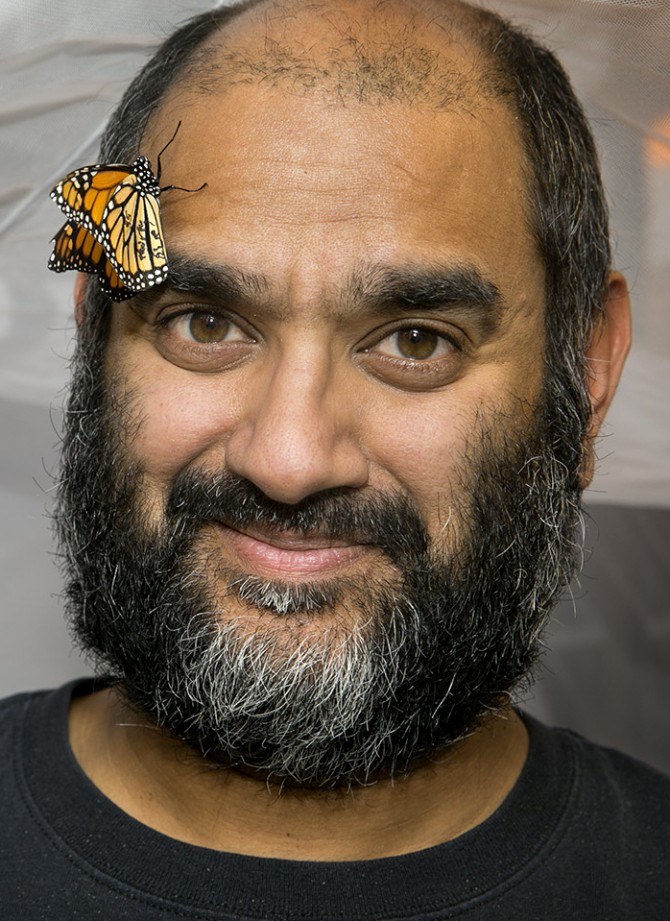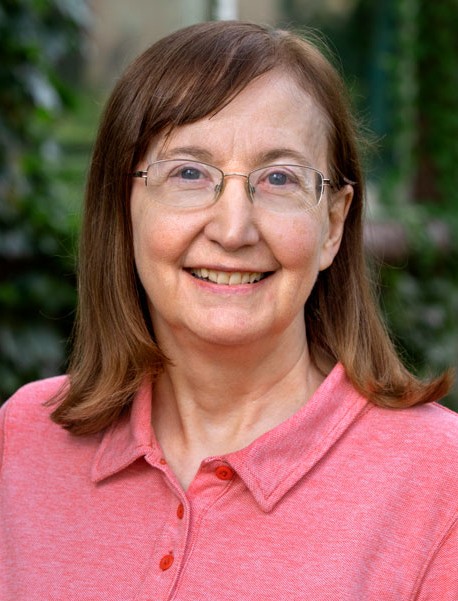Agrawal, Hanson elected to National Academy of Sciences
By Tom Fleischman
Anurag Agrawal, the James A. Perkins Professor of Environmental Studies in the College of Agriculture and Life Sciences, and Maureen Hanson, the Liberty Hyde Bailey Professor in the Department of Molecular Biology and Genetics (CALS, Arts and Sciences), have been elected to the National Academy of Sciences, the academy announced April 26.
The election of 120 members – 59 of whom are women, the most elected in a single year – brings the total number of active members to 2,461.
“The historic number of women elected this year reflects the critical contributions that they are making in many fields of science, as well as a concerted effort by our Academy to recognize those contributions and the essential value of increasing diversity in our ranks,” Marcia McNutt, president of the National Academy of Sciences (NAS), said in a statement. “I am pleased to welcome all of our new members, and I look forward to engaging with them in the work of the National Academies.”
Agrawal’s research melds questions on the ecology and evolution of interactions between wild plants and their insect pests, including aspects of community interactions, chemical ecology, coevolution and the life cycle of the monarch butterfly, which he explored in his 2017 book, “Monarchs and Milkweed: A Migrating Butterfly, a Poisonous Plant, and Their Remarkable Story of Coevolution.”
“It’s a tremendous honor and totally unexpected,” Agrawal said. “I look forward to representing Cornell and also playing a part in the NAS role of advising the U.S. government on science policy.”
A key research focus for Agrawal’s Phytophagy Lab is the generally antagonistic interactions between plants and insect herbivores. In an attempt to understand the complexity of communitywide interactions, questions include: What ecological factors allow the coexistence of similar species? And what evolutionary factors led to the diversification of species?
Agrawal’s group is currently focused on three major projects: the community and evolutionary ecology of plant-herbivore relationships; factors that make non-native plants successful invaders; and novel opportunities for pest management of potatoes. Recent work on toxin sequestration in monarch butterflies was featured on the cover of the April 20 issue of Proceedings of the National Academy of Sciences.
Agrawal received both his bachelor’s (biology) and master’s (conservation biology) in 1994 from the University of Pennsylvania, and his Ph.D. in population biology in 1999 from the University of California, Davis.
He joined the University of Toronto as an assistant professor of botany in 2000, before arriving at Cornell in 2004 as an assistant professor of ecology and evolutionary biology, with a joint appointment in the Department of Entomology. He was promoted to associate professor in 2005, and to full professor in 2010.
Agrawal was named the James A. Perkins Professor of Environmental Studies in 2017. His top honors include fellowship in the American Association for the Advancement of Science (2012), and the 2019 E.O. Wilson Award, given by the American Society of Naturalists.
Hanson is director of the Center for Enervating Neuroimmune Disease. Her research group has two distinct programs: plant biology, focusing on the genome-containing organelles of plants, chloroplasts and mitochondria; and the pathophysiology of human myalgic encephalomyelitis/chronic fatigue syndrome (ME/CFS).
“I am stunned at the number of current and prior colleagues and friends who have sent me congratulatory emails,” she said. “I want to thank the former and current members of my lab whose work made this recognition possible.”
Hanson’s lab studies how genes and proteins in chloroplasts and plant mitochondria are regulated and affect plant processes, including photosynthesis. Her group identified an aberrant mitochondrial gene that causes male sterility and, in collaboration with assistant research professor Stephane Bentolila, a nuclear gene that restores fertility to the plant by turning off the abnormal gene. Hanson and colleagues also are probing the components of organelle protein complexes that are responsible for editing RNA so that functional plant proteins can be produced.
Regarding ME/CFS, Hanson's lab has identified disruptions in the gut microbiome and are examining metabolism of immune cells and metabolites in plasma as well as the molecular effects of detrimental exercise responses in the disease.
She received her doctorate in cell and developmental biology in 1976 from Harvard University, where she later held a National Institutes of Health National Research Service Award postdoctoral fellowship. She joined the faculty of the University of Virginia in 1979, before joining the Cornell faculty as an associate professor in 1985. She was promoted to full professor in 1991.
Hanson is a fellow of the American Association for the Advancement of Science; a recent electee to the American Academy of Arts and Sciences; and a fellow of the American Society of Plant Biologists.
Agrawal and Hanson are the 65th and 66th Cornellians to be elected to the NAS since the inaugural elections in 1863. Previous electees include physicist and Nobel laureate Roald Hoffmann (1972), cancer geneticist and Nobel laureate Harold Varmus (1984) and computer theoretician John Hopcroft (2009).
Media Contact
Get Cornell news delivered right to your inbox.
Subscribe


